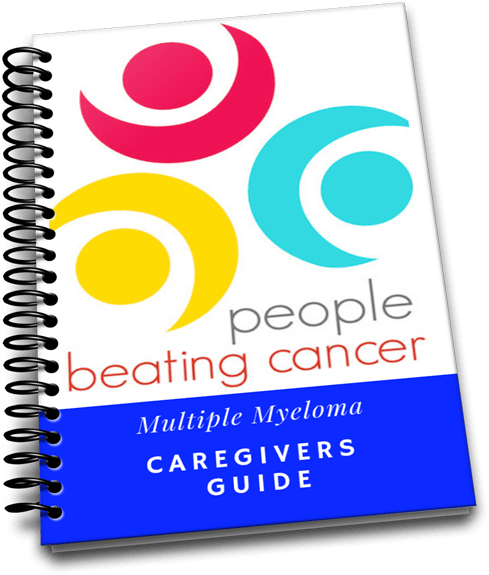
Recently Diagnosed or Relapsed? Stop Looking For a Miracle Cure, and Use Evidence-Based Therapies To Enhance Your Treatment and Prolong Your Remission
Multiple Myeloma an incurable disease, but I have spent the last 25 years in remission using a blend of conventional oncology and evidence-based nutrition, supplementation, and lifestyle therapies from peer-reviewed studies that your oncologist probably hasn't told you about.
Click the orange button to the right to learn more about what you can start doing today.
- You are here:
- Home »
- Blog »
- Caregivers »
- Elderly Multiple Myeloma- Supportive Care Under-utilized
Elderly Multiple Myeloma- Supportive Care Under-utilized

“We found significant under-utilization of supportive care measures focused at bone health and infection prevention among elderly adults with MM in the US.”
Elderly multiple myeloma, or I should say a diagnosis of MM in elderly patients is beyond difficult. The phrase “under-utilization of supportive care” in the article below is a nice way of saying that caregiving is difficult for elderly MM survivors. I’m not criticizing MM caregivers in any way.
I’m saying that, according to the article linked below, MM survivor may live longer but they live with more adverse events including CIPN (nerve damge) bone damage, infections, blood clots and fatigue.
As a long-term MM survivor myself, I see this issue every day of my life. I’m fortunate in that, while I live with many of the long-term and late stage adverse events that plague elderly MM patients, I’m still relatively young and independent. My wife focused on my caregiving when I was in active therapy from my diagnosis in early 1994 through complete remission in 1999. Dawn was able to go back to work over that.
If I were, say, 70 plus years of age, the average age of a newly diagnosed MM patient, I would need a great deal more supportive care aka caregiving, than I do currently.
The only solutions to the problem of supportive care for elderly MM survivors is to promote what I believe keeps me independent. All of those evidence-based but non-conventional complementary therapies that promote bone health, brain health, heart health, etc. may be able to make the MM survivor healthy enough to require less supportive care.
Are you a MM survivor who’s supportive care is under-utilized? Meaning, do you need caregiving support? Scroll down the page, post a question or comment and I will reply to you ASAP.
Hang in there,
David Emerson
- MM Survivor
- MM Cancer Coach
- Director PeopleBeatingCancer
Recommended Reading:
- Radiation-Induced Fibrosis & the Multiple Myeloma Survivor
- Multiple Myeloma Requires “Body-wide Immune Response”
- Surviving Multiple Myeloma- The Burden of Survivorship and Life After Treatment
Treatment Advances Make Supportive Care More Important in Multiple Myeloma
“As patients with multiple myeloma (MM) live longer thanks to advancements in treatments, more attention is being paid to treatment-related toxicities that are becoming more relevant.
Two studies presented at the 60th American Society of Hematology Annual Meeting & Exposition delved into the symptoms of treatment and the potential impact supportive care can have for patients. Patients with MM report high rates of bone pain, skeletal events, and infections.
One study1 reviewed a total of 36 articles on supportive care for patients with MM published after 2004 and found management of complications arising from treatment is necessary to improve quality of life for patients…
In addition, bortezomib caused peripheral neuropathy in 37% of patients, but dose modifications caused peripheral neuropathy to improve in 68% of patients. When patients were treated with duloxetine, a selective serotonin and norepinephrine reuptake inhibitor that treats nerve pain, there was a significant improvement in peripheral neuropathy compared with placebo.
The second study2 reviewed the extent to which supportive care measures are used. The authors analyzed 1569 patients age 65 or older who had been diagnosed with MM between 2008 and 2013. They found that 66% of the patients on active MM therapy received bisphosphonates, which prevent loss of bone density, within 12 months of diagnosis; 53% of patients received the influenza vaccine during the first flu season following their diagnosis; and 44% received antiviral prophylaxis during therapy.
Factors that predicted a lack of use of bisphosphonates included older age (85-plus years), non-Hispanic black and Hispanic ethnicity, and a higher comorbidity index. Non-Hispanic black ethnicity was also a predictor of not receiving a flu shot.
“We found significant under-utilization of supportive care measures focused at bone health and infection prevention among elderly adults with MM in the US,” the authors wrote. “Similar to prior work evaluating utilization of novel MM therapies and transplantation, we found significant racial disparities in receipt of MM supportive care.”


